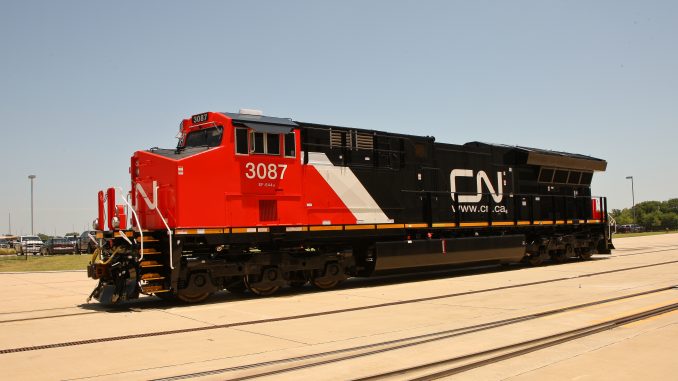
CN has initiated what it is calling “a disciplined and progressive shutdown” of its operations in Eastern Canada.
As part of the shutdown, the railroad is stopping and safely securing all trans-continental trains across its Canadian network and may imminently lead to temporary layoffs within the company’s Eastern Canadian operational staff.
CN obtained court orders and requested the assistance of enforcement agencies for a series of blockades in Ontario, Manitoba, and British Columbia. While blockades have ended in Manitoba and railroad officials hoped they may stop soon in British Columbia, in Ontario, the railroad said its orders have yet to be enforced.
“With over 400 trains cancelled during the last week and new protests that emerged at strategic locations on our mainline, we have decided that a progressive shutdown of our Eastern Canadian operations is the responsible approach to take for the safety of our employees and the protestors,” said JJ Ruest, president and chief executive officer at CN.
“This situation is regrettable for its impact on the economy and on our railroaders as these protests are unrelated to CN’s activities, and beyond our control,” Ruest added. “Our shutdown will be progressive and methodical to ensure that we are well set up for recovery, which will come when the illegal blockades end completely.”
Meanwhile, VIA Rail has canceled until further notice most of its services on the network. The sole exception is service on Sudbury-White River (CP Rail) and Churchill-The Pas (Hudson Bay Railway).
On Saturday, there were additional blockades, including one in Vancouver and two in Vaughan, Ontario. CN has sought and obtained court orders and requested the assistance of enforcement agencies to end these illegal blockades. Railroad officials expressed concerns about the safety of its employees, the public, and the protestors.
“In Vaughan, protesters put their personal safety at risk by climbing on and between railcars,” Ruest said. “The protesters trespassed on active railway tracks and on active trains to hang their banners and take photos of themselves.
“Trespassing on railway property and tampering with railway equipment is not only illegal, but also exceedingly dangerous,” Ruest said. “A train can arrive or a railcar can move at any time. A serious and even fatal incident could be the outcome. Safety is a core value at CN and every time a breach like this occurs, we send railway experts to inspect the track and equipment for the safety of our employees and the public, which further slows the movement of goods.”

